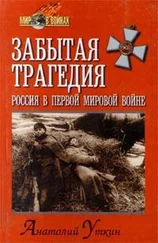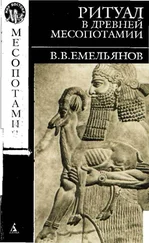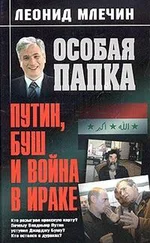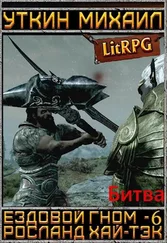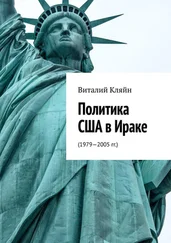«New York Times», October 7, 2001, p. 1A.
Takeyh R. Iran Nuclear Calculations («World Policy Journal», Summer 2003, p. 40).
Arreguin-Tofi I. How the Weak Win Wars: A Theory of Asymmetric Confict. Cambridge: Cambridge University Press, 2005, p. 57.
Mearsheimer J. The Tragedy of Great power politics. New York; Norton, 2002.
Barnett Th. Blueprint for Action, A Future Worth Creating. New York: G.P. Putnam’s Sons, 2005, p. 90.
Hirsh M. Bush and the World («Foreign Affairs», September/October 2002, p. 40).
«El Pais», 31, 03, 2002.
Bearden M. Afganistan, Graveyard of Empires («Foreign Affairs», November-December 2001, p. 20).
Kaplan R. Warrior Politics: Why Leadership Demands a Pagan Ethos. New York: Random House, 2001, p. 31
Creveld, Martin van. The Transformation of War: The Most Radical Reinterpretation of Armed Conflict Since Clausewitz. New York: Free Press, 1991; Kaplan R. The Coming Anarchy: Shattering the Dream of the Post – Cold War. New York: Random House, 2000.
Barnett Th. Blueprint for Action, A Future Worth Creating. New York: G.P. Putnam’s Sons, 2005, p. 96.
Indyk M. Back to the Bazaar («Foreign Affairs», January–February 2002, p. 75).
Cohen E. A Strange War («The National interest», Spring 2002, p. 32).
Woods K. , Lacey J. and Murrey W. Saddam’s Delusions: The View from the Inside («Foreign Affairs», May/June 2006, p. 15.
Anonymous. Imperial Hubris. Why the West Is Losing the War on Terror. Washington, D.C. Brassey’s Inc., 2004, p. 3.
Anonymous. Imperial Hubris. Why the West Is Losing the War on Terror. Washington, D.C. Brassey’s Inc., 2004, p. XVI.
Barnett Th. Blueprint for Action, A Future Worth Creating. New York: G.P. Putnam’s Sons, 2005, p. 83.
Anonymous. Imperial Hubris. Why the West Is Losing the War on Terror. Washington, D.C. Brassey’s Inc., 2004, p. XI.
Sageman M. Understanding Terror Networks. Philadelphia: University of Pennsylvania Press, 2004, p. 2.
Цит. по: «Foreign Affairs», January–February 2002, p. 30.
Doran M.S. Somebody Else’s Civil War («Foreign Affairs», January–February 2002, p. 30).
Anonymous. Imperial Hubris. Why the West Is Losing the War on Terror. Washington, D.C. Brassey’s Inc., 2004, p. 64.
Hirsh M. Bush and the World («Foreign Affairs», September/October 2002, p. 23).
Schroeder P. The Risks of Victory. An Historian’s Provocation («National Interest», Winter 2001/02, p. 28).
Schroeder P. The Risks of Victory. An Historian’s Provocation («National Interest», Winter 2001/02, p. 29).
Fouad Ajami. The Sentry’s Solitude («Foreign Affairs», November/December 2001, p. 15).
Ferguson N. The Price of American Empire. New York: The Penguin Press, 2004, p. 181.
Ferguson N. The Price of American Empire. New York: The Penguin Press, 2004, p. 198.
Ferguson N. The Price of American Empire. New York: The Penguin Press, 2004, p. 202.
Ferguson N. The Price of American Empire. New York: The Penguin Press, 2004, p. 280.
Mallaby S. The Reluctant Imperialist. Terrorism, failed States, and the Case for American Empire («Foreign Affairs», March/April 2002, p. 2–7).
Kaplan R. Warrior Politics: Why Leadership Demands a Pagan Ethos. New York, 2002, p. 46
«Atlantic Monthly Magazine», March 2002, p. 46
Renwick N. America’s Word Identity. The Politics of Exclusion. New York: St. Martin’s Press, 2000, p. 64.
Wallerstein I. The Eagle Has Crash Landed («Foreign Policy», July–August 2002, p. 27).
Cutter B., Spero J., Tyson L. A Democratic Approach to Globalization («Foreign Affairs», March/April 2000, p. 80).
Rielly J. (ed.) American Public Opinion and U.S. Foreign Policy, 1995, Chicago: Council on Foreign Relations, 1995, p. 24–25.
«National Review», November 2001.
Simes D. What War Means («The National interest», Spring 2002, p. 47).
Kramer M. Ivory on Sand: The Failure of Middle Eastern Studies in America. Washington: Washington Institute for Near East Policy. 2001, p. 12
Flynn S. America the Vulnerable («Foreign Affairs», January–February 2002, p. 62).
Simes D. What War Means («The National interest», Spring 2002, p. 48).
Lieber K. and Press D. The Rise of U.S. Nuclear Primacy («Foreign Affairs», March/ April 2006, p. 46).
Smith D., Corbin M., Hellman Ch. Reforging the Sword. Forces for a 21st Century Security Strategy. Washington, 2001, p. 27.
Lieber K. and Press D. The Rise of U.S. Nuclear Primacy («Foreign Affairs», March/ April 2006, p. 45).
«World Policy Journal», Fall 1996, p. 114–115.
Smith D., Corbin M., Hellman Ch. Reforging the Sword. Forces for a 21st Century Security Strategy. Washington, 2001, p. 17–19.
Waltz K. Globalization and American Power («The National Interest», Spring 2000, p. 54).
Active Duty Military Personnel Strength by Regional Area and by Country. Wasington, Department of Defense. December 31, 2000.
Friedman Th. Understanding Globalization. The Lexus and the Olive Tree. N.Y.: Anchor Books, 2000, p. 204.
Thompson M. and Duffy M. Is the Army Stretched Too Thin? («Time», September 1, 2003, p. 36).
Anonymous. Imperial Hubris. Why the West Is Losing the War on Terror. Washington, D.C. Brassey’s Inc., 2004, p. 45.
Anonymous. Imperial Hubris. Why the West Is Losing the War on Terror. Washington, D.C. Brassey’s Inc., 2004, p. 41.
Woodward B. State of Denial. New York: Simon and Schuster, 2006, p. 84.
Woodward B. Plan of Attack. New York: Simon and Schuster, 2004., p. 4.
«New York Times», April 28, 2002.
«New York Times», June 2, 2002.
Ferguson N. The Price of American Empire. New York: The Penguin Press, 2004, p. 152.
Woodward R. Plan of Attack. New York: Simon and Schuster, 2004, p. 184.
Анализ последнего документа см. в детальном разборе его Филипом Желиковым в журнале «Нэшнл интерест» за весну 2003 года (Zelikov Ph. The Transformation of National Security. Five Redefinitions [«National Interest», Spring 2003]).
Читать дальше
Конец ознакомительного отрывка
Купить книгу

